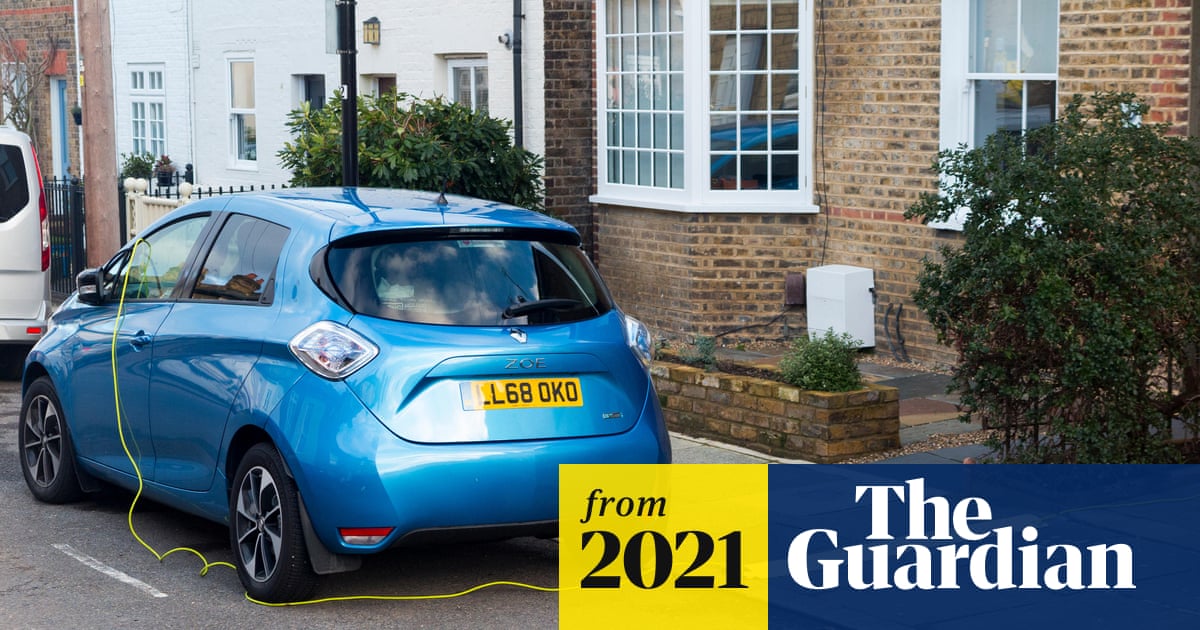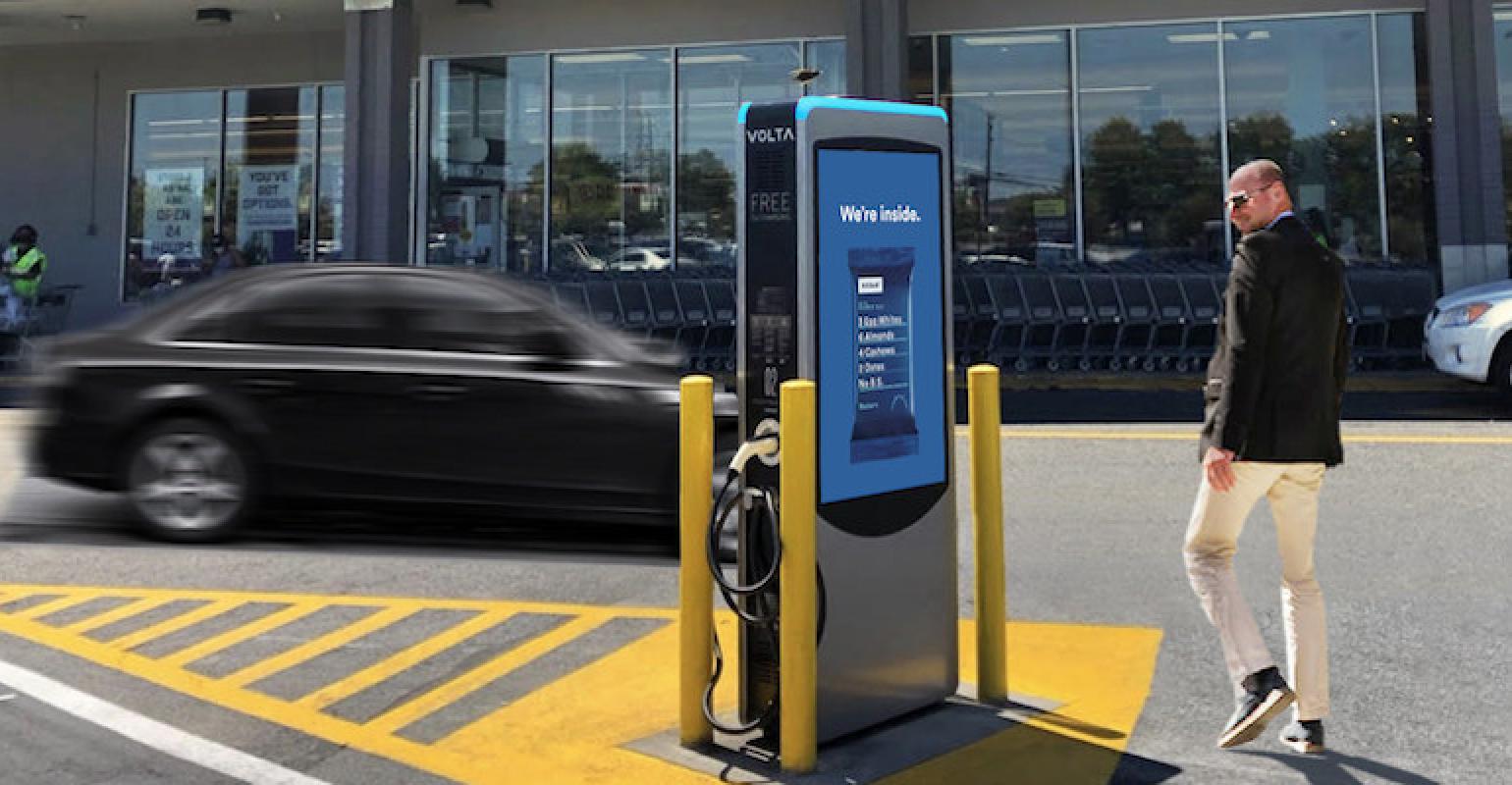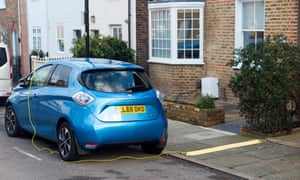Perhaps you should look at the number of them produced each year for the last decade. Tesla alone produces 500,000 EVs and there are many more companies in the market now. This year Tesla's aim is 1,000,000 vehicles, and, in Europe, Volkswagen is now outselling Tesla in EV's. And every car company that plans on staying in business is doing prototypes of EV's.Only about 3% of the global population drive them.
So I don't understand what is meant by them being on the tipping point of mass production.
Navigation
Install the app
How to install the app on iOS
Follow along with the video below to see how to install our site as a web app on your home screen.
Note: This feature may not be available in some browsers.
More options
You are using an out of date browser. It may not display this or other websites correctly.
You should upgrade or use an alternative browser.
You should upgrade or use an alternative browser.
Electric vehicles close to ‘tipping point’ of mass adoption
- Thread starter EvilEyeFleegle
- Start date
- Nov 2, 2017
- 16,326
- 9,374
- Thread starter
- #22
They mean that the price point for the electric car will compare favorably with the price point for an internal combustion vehicle.Only about 3% of the global population drive them.
So I don't understand what is meant by them being on the tipping point of mass production.
The anticipate that people will vote with their wallets..and a new electric car..with the saving in fuel costs....willl capture large market share.
thus...tipping point.
Plus the cost of fuel and maintenance are all in the favor of the EV's. Tesla says that the motors in the Semi will be guaranteed for a million miles, and those are the same motor that are in the Tesla 3.They mean that the price point for the electric car will compare favorably with the price point for an internal combustion vehicle.Only about 3% of the global population drive them.
So I don't understand what is meant by them being on the tipping point of mass production.
The anticipate that people will vote with their wallets..and a new electric car..with the saving in fuel costs....willl capture large market share.
thus...tipping point.
Crepitus
Diamond Member
- Mar 28, 2018
- 76,550
- 75,409
But it's got the Tesla beat by miles in style and sheer awesome.That lead sled might keep up with a Tesla 3. Then again...........
- Mar 23, 2010
- 43,844
- 14,636
I knew it was a thing when a free charging station showed up at my local grocery store.So..progress..as always..being driven by consumer demand:

Electric vehicles close to ‘tipping point’ of mass adoption
Sales increase 43% globally in 2020 as plunging battery costs mean the cars will soon be the cheapest vehicles to buywww.theguardian.com
In a poll of electric car owners, 91% said they would not want to return to petrol.
Electric vehicles are close to the “tipping point” of rapid mass adoption thanks to the plummeting cost of batteries, experts say.
Global sales rose 43% in 2020, but even faster growth is anticipated when continuing falls in battery prices bring the price of electric cars dipping below that of equivalent petrol and diesel models, even without subsidies. The latest analyses forecast that to happen some time between 2023 and 2025.
The tipping point has already been passed in Norway, where tax breaks mean electric cars are cheaper. The market share of battery-powered cars soared to 54% in 2020 in the Nordic country, compared with less than 5% in most European nations.
Transport is a major source of carbon emissions and electric cars are vital in efforts to fight the climate crisis. But, while they are already cheaper to run, their higher purchase price is a barrier to mass uptake. The other key factor is “range anxiety”, but this week the first factory production began of batteries capable of giving a 200-mile charge in five minutes.

fncceo
Diamond Member
- Nov 29, 2016
- 43,166
- 35,940
I knew it was a thing when a free charging station showed up at my local grocery store.

It might be free to the car owner, but SOMEONE is paying for the (most likely coal provided) electricity.
Electricity isn't free. I suggest that whomever installed it there charges a fee to the businesses in the vicinity that they, in turn, pass on to the consumer.
So, effectively, everyone who shops there, is subsidizing the electric vehicle owner.
- Mar 23, 2010
- 43,844
- 14,636
The fact is that someone thought it economically worthwhile to offer me the chance to keep my credit card in my pocket, making it effectively free for me. Of course, everything has a cost, but to focus on that misses the point.It might be free to the car owner, but SOMEONE is paying for the (most likely coal provided) electricity. Electricity isn't free. I suggest that whomever installed it there charges a fee to the businesses in the vicinity that they, in turn, pass on to the consumer. So, effectively, everyone who shops there, is subsidizing the electric vehicle owner.I knew it was a thing when a free charging station showed up at my local grocery store.

fncceo
Diamond Member
- Nov 29, 2016
- 43,166
- 35,940
The fact is that someone thought it economically worthwhile to offer me the chance to keep my credit card in my pocket, making it effectively free for me. Of course, everything has a cost, but to focus on that misses the point.
No, it is entirely the point.
People today love to espouse things like free electricity, free health care, free education as if such things actually exist.
What is free to you is effectively paid for by someone else.
People who crave 'free stuff' have never made the emotional leap from being a child (where all your needs are 'free') to being an adult (where you are expected to pay for your own needs).
- Mar 23, 2010
- 43,844
- 14,636
You're missing the point in that the "free stuff" isn't being given out by the government; it's the free choice of a private enterprise.No, it is entirely the point. People today love to espouse things like free electricity, free health care, free education as if such things actually exist. What is free to you is effectively paid for by someone else. People who crave 'free stuff' have never made the emotional leap from being a child (where all your needs are 'free') to being an adult (where you are expected to pay for your own needs).The fact is that someone thought it economically worthwhile to offer me the chance to keep my credit card in my pocket, making it effectively free for me. Of course, everything has a cost, but to focus on that misses the point.
Captain Caveman
Platinum Member
- Jun 14, 2020
- 11,903
- 6,554
200 miles, that's amazing. Is that towing a caravan?So..progress..as always..being driven by consumer demand:

Electric vehicles close to ‘tipping point’ of mass adoption
Sales increase 43% globally in 2020 as plunging battery costs mean the cars will soon be the cheapest vehicles to buywww.theguardian.com
In a poll of electric car owners, 91% said they would not want to return to petrol.
Electric vehicles are close to the “tipping point” of rapid mass adoption thanks to the plummeting cost of batteries, experts say.
Global sales rose 43% in 2020, but even faster growth is anticipated when continuing falls in battery prices bring the price of electric cars dipping below that of equivalent petrol and diesel models, even without subsidies. The latest analyses forecast that to happen some time between 2023 and 2025.
The tipping point has already been passed in Norway, where tax breaks mean electric cars are cheaper. The market share of battery-powered cars soared to 54% in 2020 in the Nordic country, compared with less than 5% in most European nations.
Transport is a major source of carbon emissions and electric cars are vital in efforts to fight the climate crisis. But, while they are already cheaper to run, their higher purchase price is a barrier to mass uptake. The other key factor is “range anxiety”, but this week the first factory production began of batteries capable of giving a 200-mile charge in five minutes.
Having already gone from Ft. Collins, Colorado to Sturgeon Bay, Wisconsin on a $10 Panasonic bicycle, an e-bike interstate system of the future is possible, which includes charging/exchanging stations. Once e-bike batteries are (standardized [italics]), the system’s popularity will gain momentum, because it’s only a matter of dropping off the spent battery and putting coins into the machine (or an attendant’s hand) for a fresh one. We will also introduce solar cooking/bread-baking for spring 2021 at our Wisconsin charging station. For example the tubular type cooker may be compatible for French-style baguettes.
Circe
Platinum Member
- Jan 28, 2013
- 13,922
- 7,009
No, I think he's right. Elon Musk is an "influencer," one of the most influential of that type. I agree that electric cars are on a tipping point, and would be a good investment, IMO. Remember, when autos first came in, there were no gas stations. People CARRIED gas cans with them --- you read descriptions of that all the time in Classic Mysteries and such. This kind of thing is what "build it and they will come" means. Sell the cars, people will invest in charging stations.Only about 3% of the global population drive them.
So I don't understand what is meant by them being on the tipping point of mass production.
Here's another tipping point, IMO: "plant-based foods" a euphemism for ersatz meat, like Beyond Meat. It's definitely taking off, I think.
Circe
Platinum Member
- Jan 28, 2013
- 13,922
- 7,009
One showed up at a local Walgreen YEARS ago --- oh, I bet 8 years ago. Of course they were wildly too early. They'll demolish that store before it's used. It is looking very shabby.I knew it was a thing when a free charging station showed up at my local grocery store.

Circe
Platinum Member
- Jan 28, 2013
- 13,922
- 7,009
People today love to espouse things like free electricity, free health care, free education as if such things actually exist.
What is free to you is effectively paid for by someone else.
People who crave 'free stuff' have never made the emotional leap from being a child (where all your needs are 'free') to being an adult (where you are expected to pay for your own needs).
One of my favorite quotes was by the Sun Microsystems guy -- "If it's free, you aren't the customer, you're the product." The entire Internet is built on that fact.
- Nov 17, 2009
- 70,708
- 38,544
You're missing the point in that the "free stuff" isn't being given out by the government; it's the free choice of a private enterprise.
That private enterprise is making it "free" to you at someone else's expense. That is the point he keeps making and the one you keep missing.
- Mar 23, 2010
- 43,844
- 14,636
You're kidding, right? I got his point immediately. It's just that it was irrelevant to mine.That private enterprise is making it "free" to you at someone else's expense. That is the point he keeps making and the one you keep missing.You're missing the point in that the "free stuff" isn't being given out by the government; it's the free choice of a private enterprise.
ding
Confront reality
- Oct 25, 2016
- 120,659
- 21,386
How are they making electricity?So..progress..as always..being driven by consumer demand:

Electric vehicles close to ‘tipping point’ of mass adoption
Sales increase 43% globally in 2020 as plunging battery costs mean the cars will soon be the cheapest vehicles to buywww.theguardian.com
In a poll of electric car owners, 91% said they would not want to return to petrol.
Electric vehicles are close to the “tipping point” of rapid mass adoption thanks to the plummeting cost of batteries, experts say.
Global sales rose 43% in 2020, but even faster growth is anticipated when continuing falls in battery prices bring the price of electric cars dipping below that of equivalent petrol and diesel models, even without subsidies. The latest analyses forecast that to happen some time between 2023 and 2025.
The tipping point has already been passed in Norway, where tax breaks mean electric cars are cheaper. The market share of battery-powered cars soared to 54% in 2020 in the Nordic country, compared with less than 5% in most European nations.
Transport is a major source of carbon emissions and electric cars are vital in efforts to fight the climate crisis. But, while they are already cheaper to run, their higher purchase price is a barrier to mass uptake. The other key factor is “range anxiety”, but this week the first factory production began of batteries capable of giving a 200-mile charge in five minutes.
ReinyDays
Gold Member
- Oct 5, 2019
- 14,780
- 7,091
How are they making electricity?
Hydro and wind ... that's why free charging stations show up everywhere around here ... the kW-hrs are dirt cheap, it's the maintenance on the grid that's expensive ... and that cost has to be paid anyway ...
Pretty funny folks arguing "the electricity ain't free, someone has to pay" ... the roadbeds ain't free either, someone has to pay ...
ding
Confront reality
- Oct 25, 2016
- 120,659
- 21,386
Fair enough. That isn't the case in most locations.How are they making electricity?
Hydro and wind ... that's why free charging stations show up everywhere around here ... the kW-hrs are dirt cheap, it's the maintenance on the grid that's expensive ... and that cost has to be paid anyway ...
Pretty funny folks arguing "the electricity ain't free, someone has to pay" ... the roadbeds ain't free either, someone has to pay ...
Similar threads
- Replies
- 90
- Views
- 738
- Replies
- 2
- Views
- 137
- Replies
- 2
- Views
- 216
- Replies
- 139
- Views
- 1K
Latest Discussions
- Replies
- 173
- Views
- 909
- Replies
- 4
- Views
- 20
- Replies
- 235
- Views
- 1K
Forum List
-
-
-
-
-
Political Satire 8553
-
-
-
-
-
-
-
-
-
-
-
-
-
-
-
-
-
-
-
ObamaCare 781
-
-
-
-
-
-
-
-
-
-
-
Member Usernotes 485
-
-
-
-
-
-
-
-
-
-
